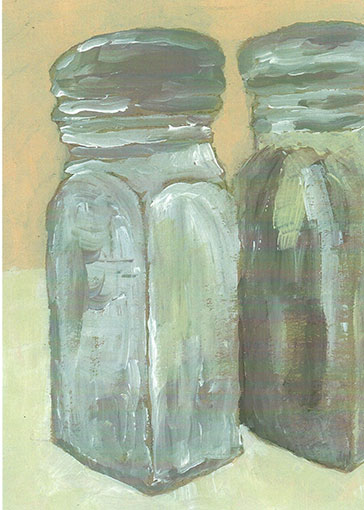Bunkong Tuon
My Uncle
got up at 5, drove
his wife to work, dropped
his sister and brother-in-law
at the train station, took
his children to school, returned
home to have breakfast.He ate gruel with salted
fish as if he had just
escaped from the Khmer Rouge;
after three years, eight months,
and twenty days of hard labor,
rice and water never tasted better.He drank hot jasmine tea with
the TV news blasting, paying attention
to words like “crimes,” “human rights
abuses,” “tribunal,” “prosecution,” looking
up “indictment,” “custody” in his Huffman-
and-Proum English-Khmer dictionary.By 9am, my uncle unlocked the deadbolt
to his store, picked the videos
from the return box, cleared them
in his computer, and when the bell rang,
he looked up smiling, “Good morning.
Welcome to King Videos,”
as if he were the luckiest man alive.
Dancing Fu Manchu MasterOne day, walking home
by myself, a blue plastic backpack slung
over my shoulders, a Christmas gift
from our sponsor, I noticed three boys
watching me from the convenience store
down the corner near an apartment complex.
The leader, a short, red-haired, chubby kid,
stepped out of the shadow, and called out,
“Ching Chong, are you from Hong Kong?”
I quickened my pace pretending
to hear my Grandmother calling me.
“Hey, can you help me with my math homework?”
They burst out laughing.
Seeing me walk firmly away, they slurred out
a slew of hurtful words.
“Why don’t you go back to China?”
“Do you eat dogs where you come from?”
“You use grass and leaves to wipe your ass, right?"
“Do you know Kung Fu?”With this last question, saliva,
warm and gooey, hit my neck.
I closed my eyes, counted my steps,
mindful of my breath, my heart slowed.
I jumped and turned,
thirty feet straight into the air,
took out my sword, with a flick
of the wrist, saw heads roll,
tumbling away down the sidewalk,
bodies slumped behind:
red blossoming concrete.Trained in the mysterious arts
of Dr. Fu Manchu, I made myself
disappear before the police arrived.Bunkong Tuon teaches literature and writing at Union College, in Schenectady, NY. His work has appeared or is forthcoming in The Massachusetts Review, The New York Quarterly, Numéro Cinq, The Journal of War, Literature, and the Arts, among other publications. Gruel, his first full-length collection of poems, will be published by NYQ Books in late 2014.
